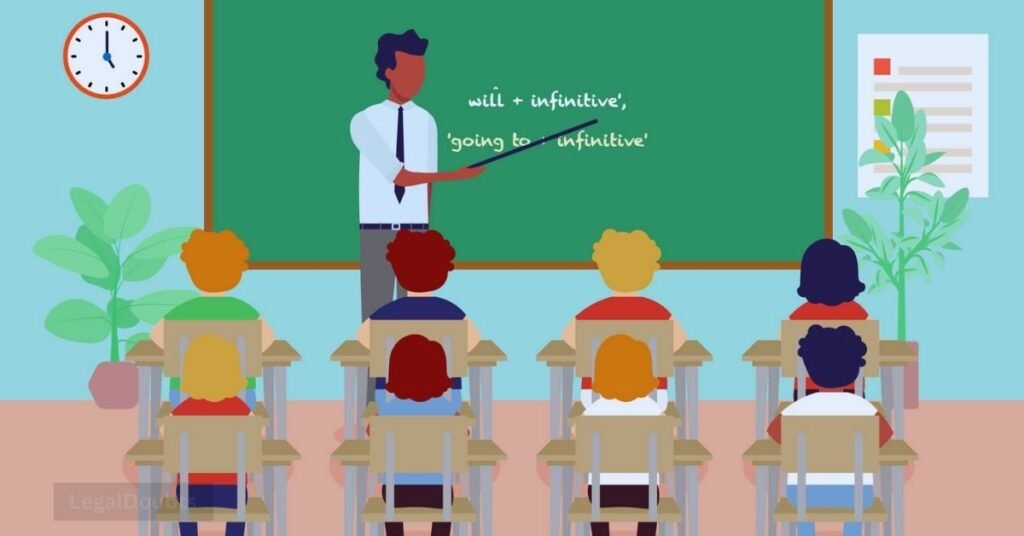Is It Illegal To Keep Students After The Bell?
Ever been caught in class well beyond the bell’s ring, feeling like a prisoner with chalkboards and textbooks? We’ve all been there. It raises an important question that we’ll tackle – Is it illegal to keep students after the bell?
The straightforward answer is no. Keeping students after the bell isn’t generally considered illegal. However, this may vary based on state laws and school policies.
But wait! There’s more to this tale than just legality. Stick around as we navigate through the nuances of this topic, shedding light on factors such as your rights as a student, teachers’ responsibilities, and what exactly different education policies have to say about it. So brace yourself for an enlightening journey ahead.

Key Takeaways
- Holding students after the bell without proper justification could potentially be a violation of their rights.
- Schools should establish clear guidelines and protocols to ensure that any necessary detentions or disciplinary actions are fair and lawful.
- It is important for educators to understand the legal implications of keeping students after school hours, respecting their freedom and ensuring they receive appropriate support.
- By prioritizing effective communication and alternative approaches to discipline, schools can create a positive learning environment while still addressing behavioral issues effectively.
Can schools legally keep students after the bell?
School policies
Many schools have policies in place regarding student supervision after school hours. These policies typically outline whether students can be kept on campus beyond regular dismissal times and under what conditions.
Parental consent
In some cases, schools may require parental consent for keeping students after the bell. This ensures that parents are aware of their child’s whereabouts and agree to extended supervision.
Safety concerns
Schools prioritize student safety above all else. If there are valid safety concerns or emergencies, such as inclement weather or transportation issues, it may be necessary for schools to keep students until it is safe for them to leave.
Extracurricular activities
Schools often offer extracurricular programs or clubs that take place after regular school hours. Participation in these activities may require students to stay on campus until they conclude.
What are the consequences of keeping students beyond school hours?
One consequence of keeping students beyond school hours is increased stress levels. When students are forced to stay at school for extended periods of time, they may feel overwhelmed and anxious. This can negatively impact their mental health and overall well-being.
Another consequence is a lack of free time for extracurricular activities or personal interests. Students need time outside of the classroom to explore their passions, engage in hobbies, or simply relax.
By keeping them at school longer, these opportunities are limited, potentially hindering their personal development.
Additionally, prolonged school hours can lead to decreased family time and disrupted routines.
Spending less time with loved ones can strain relationships and hinder communication within the household. Furthermore, disruptions to daily routines can affect sleep patterns and overall productivity.
To address these consequences, it is important for schools to prioritize efficient use of class time during regular school hours.
By maximizing instructional minutes and minimizing distractions, educators can help ensure that students have adequate learning opportunities without the need for excessive after-school sessions.
Are there any exceptions to the legality of keeping students after the bell?
When it comes to keeping students after the scheduled dismissal time, there are a few exceptions that schools may consider. Let’s explore these exceptional circumstances:
Extra-curricular activities
Schools often have after-school clubs, sports teams, or other extracurricular activities that require students to stay beyond regular hours. These activities can provide valuable learning experiences and help develop various skills in students.
Remedial classes or tutoring
In some cases, schools may need to hold additional classes or offer tutoring sessions after school hours to support struggling students who require extra attention and assistance in their studies.
Special events or projects
Occasionally, schools may organize special events such as science fairs, art exhibitions, or community service projects that extend beyond normal school hours. These events allow students to showcase their talents and engage with the community.
Emergency situations
If unforeseen circumstances arise during school hours, such as severe weather conditions or security concerns, it may be necessary for schools to keep students on campus until it is safe for them to leave.
How can parents ensure their child’s rights aren’t violated when kept after school?
Ensuring that your child’s rights are not violated when they are kept after school is of utmost importance. As a parent, there are several steps you can take to safeguard your child’s well-being and rights in such situations.
Firstly, it is crucial to establish open lines of communication with the school or institution where your child stays after school.
Regularly engage with teachers, administrators, and staff to understand their policies and procedures regarding after-school care. This will help you stay informed about how your child will be supervised and cared for during these hours.
Secondly, familiarize yourself with local laws and regulations concerning the rights of children in educational settings.
Educate yourself about any specific legal protections in place that apply to after-school programs or facilities. By understanding these laws, you can better advocate for your child’s rights if necessary.
Additionally, consider joining or forming a parent-teacher association (PTA) or parent support group within the school community. These groups often play an active role in ensuring the welfare and safety of students during extended hours at school.
Collaborating with other parents can provide collective strength in addressing concerns related to your child’s rights.
Furthermore, make it a habit to regularly check-in with your child about their experiences at after-school programs.
Encourage open conversations where they feel comfortable sharing any grievances or concerns they may have encountered while staying late at school.
By actively listening to their experiences, you can identify potential issues promptly and address them effectively.
Is it necessary for schools to have clear policies regarding keeping students after the bell?
Having clear policies regarding keeping students after the bell is essential for schools. These policies help ensure a safe and structured learning environment, allowing teachers to effectively manage their classrooms and maintain order.
One reason why clear policies are necessary is that they establish expectations for both students and teachers. When everyone knows what is expected of them, it creates a sense of accountability and reduces confusion.
Students understand that they must remain in class until dismissed, while teachers know they have the authority to enforce this rule.
Additionally, clear policies provide guidelines on how to handle situations where students need extra time or assistance after school hours.
For example, if a student requires additional support with their homework or needs to make up missed assignments, there should be procedures in place to address these needs without disrupting other students’ schedules.
Furthermore, having clear policies can also prevent potential safety issues. Schools need protocols on how to handle late buses or unforeseen circumstances that may delay dismissal.
By having these plans in place, administrators can ensure that all students are accounted for and safely supervised until they can leave school grounds.
FAQs
Q: Can teachers legally keep students after the bell?
A: Yes, teachers have the authority to keep students after the bell if it is necessary for educational purposes or disciplinary actions.
Q: Are there any legal restrictions on keeping students after school hours?
A: Generally, there are no specific legal restrictions on keeping students after school hours as long as it aligns with school policies and regulations.
Q: Is it illegal to detain students without their consent?
A: It is generally not illegal to detain students without their consent if it is done within reasonable limits and for legitimate reasons such as ensuring student safety or addressing behavioral issues.
Q: What are the consequences for schools that illegally hold students beyond dismissal time?
A: Schools that illegally hold students beyond dismissal time may face legal consequences such as lawsuits from parents or guardians, potential investigations by education authorities, and reputational damage.


